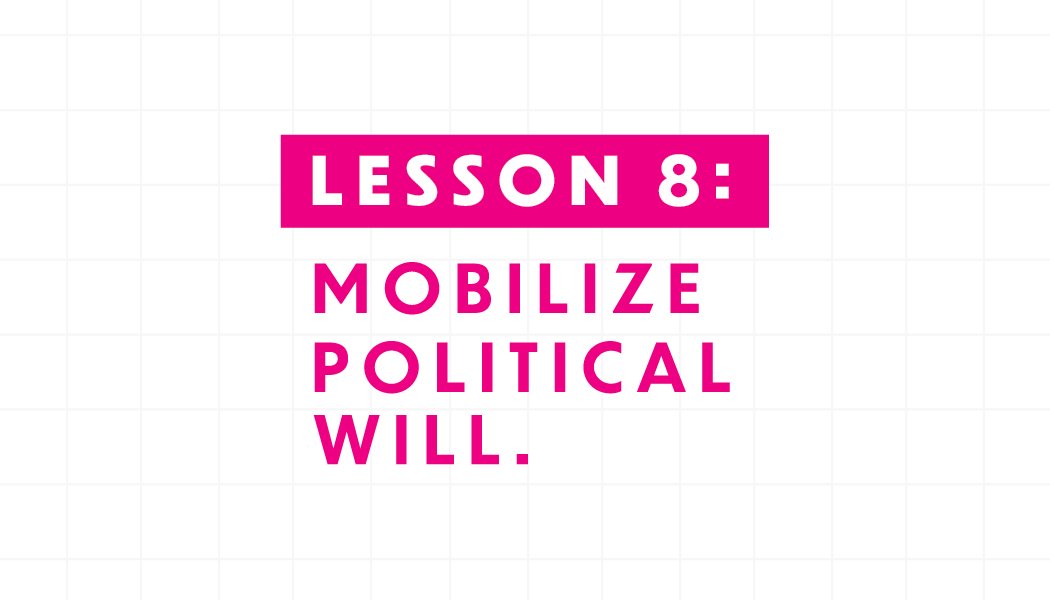Mobilize political will, because with it, anything is possible; without it, nothing is.
Public health is responsible for the health of everyone in a particular jurisdiction, not just the health of those who come to a hospital or see a nurse or doctor. And in most cases, the only institution that is responsible for everyone is the government, and the government pays for public health. For this reason politicians are necessarily involved in developing public health policies, implementing them, and paying for them.
Understanding the problem and how to solve it, is not enough. These policies must be transformed into action. So the support of the political body is necessary to make things happen, not just in the realm of public health.
Political will can also refer to the decision-making of groups other than the government. Political will is a commitment to action by these decision-makers. The best policies and regulations come when scientists work together with politicians to craft them. Policymakers must be held accountable.
PART 8.1
In 1973 India had thousands of cases of smallpox. For a while they were reporting one thousand new cases every day. Leaders of the eradication effort wanted to solicit help from WHO and bring in physicians, epidemiologists and health worker volunteers from other countries to supplement the Indian teams. But the Minister of Health for India felt that India had plenty of health workers and volunteers to do the job and said that people from other countries were not needed. The Minister's support for the smallpox effort was essential, so the team had to convince him to support bringing in workers from other countries without being critical of the great resources India already had.
FEATURING
Dr. Bill Foege, Senior Advisor, Bill & Melinda Gates Foundation
Dr. Susmita Parashar, Associate Professor, Emory University School of Medicine
Dr. Jim Kim, President (2012- 2019), World Bank
PART 8.2
In Senegal, young girls usually had to go through a painful process deeply embedded in the culture of their society that served no purpose, and had been going on generation after generation. Girls and women were advocating for an end to this practice of female genital cutting. But their pleas were not enough to convince men throughout the country to stop this traditional cultural practice.
FEATURING
Melinda French Gates, Co-chair of the Bill & Melinda Gates Foundation
PART 8.3
In February 2016, the World Health Organization declared the Zika virus outbreak a Public Health Emergency of International Concern. The Latin America and Caribbean (LAC) region was the most affected with more than 700,000 cases reported. In response to the outbreak, the U.S. Government allocated a portion of the funds remaining from the previous Ebola outbreak response to the LAC region. But money was not enough. The region lacked the public health and laboratory infrastructure for disease surveillance, contact tracing, and diagnostics, and needed to quickly build a workforce to respond and prevent future outbreaks.
FEATURING
Dr. Angela Hilmers, Director of Strategic and Technical Initiatives, TEPHINET, The Task Force for Global Health
Mobilize political will, because with it, anything is possible; without it, nothing is.
Government institutions are involved in all public health decisions, because in most cases the government is the only institution that is focused on everyone.
Change requires scientific evidence, a strategy for implementing the change, and the commitment of key decision-makers to turn the strategy into action.
Societal and political commitment is essential, as well as the capacity for financial, managerial and technical support. Disease eradication programs should not bypass or compromise existing health systems and attempts should be made to expand benefits to health services beyond the limited impact of eradicating the target disease. The government should commit support with a willingness to sustain the effort until the campaign has been successful.
Creating a social strategy helps to persuade the government to make changes.
A great idea may be lost if you cannot gain support for it and create action.
Listening without judging, and educating oneself as well as others is an important part of developing political will.
Not taking individual credit for a change is often the secret weapon in gaining political will.
LESSON 8:
THE BIG IDEAS
To learn more about this topic, refer to the additional resources below. For in-depth concepts, refer to the deeper dives. Click the glossary link to find key terms in this lesson.
Additional Resources
The Vision Zero Handbook Disease Elimination and Eradication: Lessons from the Front Lines That Apply To More Than Infectious Diseases—Mark Rosenberg, Emaline Laney, and Claes Tingvall, Springer-Nature, September 2022.
The Importance of Giving Credit, by Sachin H. Jain, Harvard Business Review, March 07, 2014
Deeper Dives
Dr. Walter Orenstein, the former Director of the US National Immunization Program, shares his perspective on what it takes to get vaccines into arms. Learn more here: Vaccinations, political will, and the importance of using anecdata for good
How have Peru, Liberia and Brazil taken advantage of an opportunity to build political will to transform outcomes? Learn more here: How leaders have leveraged windows of opportunity
LESSON 8:
Additional resources
THIS LESSON WAS MADE POSSIBLE BY THE FOLLOWING CONTRIBUTORS
Kate Adelung, Shalimar Adorno, Nina Alcacio, Michael Bartenfeld, Sarah Borgman, Amanda Brayman, Hannah Burris, Amy Carzo, Prarthna Desai, Gabriel Diamond, Veronica Garcia, Gates Notes, Eric Hansen, Lynn Heinisch, Mary Hilpertshauser, Bruce Lowry, Amy Mayberry, Nancy Messonnier, Ben Pyne, Sumon Ray, Svetlomir Slavchev, Joel Stanojevich, Emily Staub, Kelly Stewart, Anushka Swalef, Lisa Valente, Bill Warren, Lisa Wiley, and Sydney Yang
Images and Videos provided by: Bending the Arc, Bill & Melinda Gates Foundation, CDC Public Health Image Library, Emory University, Gavi, The Vaccine Alliance, Getty Images, MAP International, Personal collection of Angela Hilmers, Private collection of Susmita Parashar, Shutterstock, Tostan, UNICEF, and the World Health Organization
OUR FUNDERS
CONRAD N. HILTON FOUNDATION, CDC FOUNDATION, FORD FOUNDATION, GATES VENTURES, ROCKEFELLER FOUNDATION, SKOLL FOUNDATION, THE CARTER CENTER, THE TASK FORCE FOR GLOBAL HEALTH

